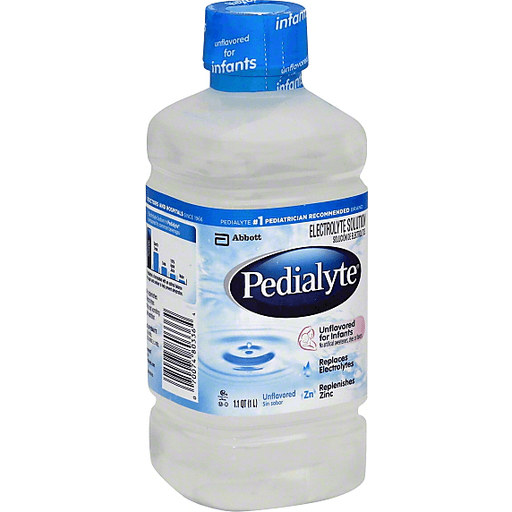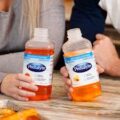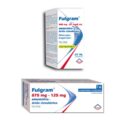Everyone experiences an upset stomach and indigestion, or dyspepsia, from time to time after eating or drinking. The condition is usually no cause for concern, and it is often possible to treat the symptoms using home remedies.
Common symptoms of an upset stomach and indigestion include:
• heartburn, or acid reflux
• nausea
• bloating
• gas
• belching, sometimes bringing up bitter or foul-tasting fluid or food
• farting
• bad-smelling or sour breath
• hiccupping or coughing
Is Pedialyte Good For Upset Stomach and vomiting?
Pedialyte is an oral rehydration solution (ORS) used to help prevent or reverse dehydration in children. It contains water, sugar, and minerals, making it more effective than water at replacing fluids lost due to illness or excessive sweating. Pedialyte is widely available and can be purchased without a prescription. As a result, many parents rely on the beverage to keep their babies and children hydrated throughout bouts of vomiting, diarrhea, or other illnesses.
What form(s) does this medication come in?
Liquid
Unflavoured
Active ingredients (mg/100 mL): 2500 mg of dextrose, 205 mg of sodium chloride, 204 mg of potassium citrate, and 86 mg of sodium citrate. Nonmedicinal ingredients: water and citric acid.
Fruit-flavoured
Active ingredients (mg/100 mL): 2500 mg of dextrose, 205 mg of sodium chloride, 204 mg of potassium citrate, and 86 mg of sodium citrate. Nonmedicinal ingredients: water, citric acid, artificial fruit flavour, sucralose, acesulfame potassium, and FD&C Yellow No. 6.
Grape-flavoured
Active ingredients (mg/100 mL): 2500 mg of dextrose, 205 mg of sodium chloride, 204 mg of potassium citrate, and 86 mg of sodium citrate. Nonmedicinal ingredients: water, citric acid, artificial grape flavour, sucralose, acesulfame potassium, FD&C Red No. 40, and FD&C Blue No. 1.
Freezer pops
Each freezer pop contains water, dextrose, citric acid, sodium chloride, sodium carboxymethylcellulose, potassium citrate, potassium sorbate, sodium benzoate, sucralose, and acesulfame potassium. Nonmedicinal ingredients: grape: natural and artificial grape flavour, FD&C Red No. 40, and FD&C Blue No. 1. Cherry: natural and artificial cherry flavour and FD&C Red No. 40. Orange: natural and artificial orange flavour, FD&C Yellow No. 6, and FD&C Red No. 40. Blue raspberry: natural and artificial blue raspberry flavour and FD&C Blue No. 1.
How should I use this medication?
The amount of solution you should take depends on your weight. Toddlers, children, and adults should generally take 100 mL to 150 mL per kilogram of body weight (45 mL to 70 mL per pound) each day. Follow the directions provided with the product you are using. If you are also vomiting, start with small amounts of solution and increase this amount when vomiting subsides. Speak to your doctor or pharmacist about doses for your infant. If you are breastfeeding your infant, continue to do so while you are giving your infant an oral rehydration solution. Discontinue feeding for 24 hours if your infant is fed cow’s milk or milk formula.
Many things can affect the dose of medication that a person needs, such as body weight, other medical conditions, and other medications. If your doctor or pharmacist has recommended a dose different from the ones above, do not change the way that you are taking the medication without consulting your doctor.
Store this medication at room temperature and keep it out of the reach of children. If you make a solution from a powder, any solution that is left one hour after making it should be discarded. The solution made from powder can be stored in the refrigerator after mixing for up to 24 hours. When products bought in solution form are opened, they can be stored in the refrigerator for up to 48 hours. For freezer pops, discard any unused solution.
This medication is available under multiple brand names and/or in several different forms. Any specific brand name of this medication may not be available in all of the forms listed here. The forms available for the specific brand you have searched are listed under “What form(s) does this medication come in?”
Do not dispose of medications in wastewater (e.g. down the sink or in the toilet) or in household garbage. Ask your pharmacist how to dispose of medications that are no longer needed or have expired.
Who should NOT take this medication?
Oral rehydration solutions should not be taken by anyone who:
• is allergic to any of the ingredients of the medication
• has a blockage in the intestines or perforation (tear or hole) in the bowel
What side effects are possible with this medication?
There are no known side effects associated with this medication.
Are there any other precautions or warnings for this medication?
Before you begin using a medication, be sure to inform your doctor of any medical conditions or allergies you may have, any medications you are taking, whether you are pregnant or breastfeeding, and any other significant facts about your health. These factors may affect how you should use this medication.
Freezer pops: Freezer pops may change colour slightly when frozen and may temporarily colour the mouth.
Persistent diarrhea: If diarrhea does not improve within 24 hours after taking this medication, talk to your doctor or pharmacist.
Persistent vomiting: See your doctor before taking this medication if you cannot stop vomiting. Children with diarrhea, vomiting, and fever should see a doctor.
Powders: Oral rehydration powders should only be mixed with the specified amount of water to ensure that the amount of sugar and electrolyte in the solution is accurate.
What other drugs could interact with this medication?
Tell your doctor or prescriber about all prescriptions, over-the-counter (non-prescription), and herbal medications that you are taking. Also, tell them about any supplements you take. Since caffeine, alcohol, nicotine from cigarettes, or street drugs can affect the action of many medications, you should let your prescriber know if you use them. Depending on your specific circumstances, your doctor may want you to:
• stop taking one of the medications,
• change one of the medications to another,
• change how you are taking one or both of the medications, or
• leave everything as is.
When to see a doctor
Stomach problems sometimes do indicate a more serious problem. Prolonged vomiting puts you at risk for dehydration. Drinking small sips of water can help prevent dehydration. Go see a doctor if you are having trouble keeping water down for longer than six hours. You should also call your doctor if you experience nausea or stomach pain and discomfort for more than 48 hours. If you notice that you are consistently having stomach troubles after eating certain foods or engaging in specific activities, talk to your doctor about your symptoms at your next visit. It may be nothing, but a quick trip to your family doctor can rule out Crohn’s disease, a food allergy, or any other concerns. READ: Is Pedialyte Good For Diabetics?






